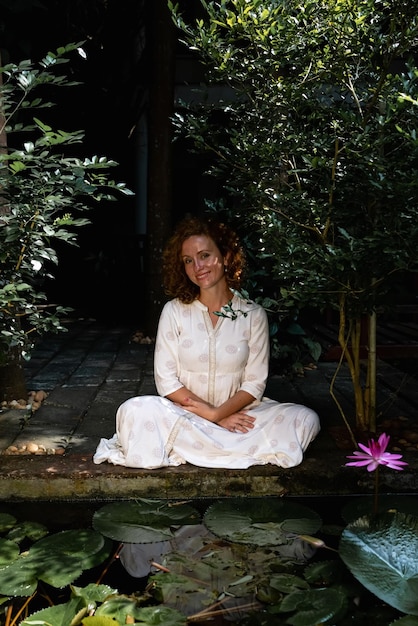The Art of Forgiveness: Letting Go and Moving Forward

The Art of Forgiveness involves understanding the emotional and psychological processes necessary to release resentment, anger, and the desire for vengeance, allowing individuals to heal, grow, and experience a more peaceful and fulfilling life.
Are you carrying the weight of past hurts? Discover the art of forgiveness and how it can unlock inner peace, improve your relationships, and propel you toward a brighter, more fulfilling future.
Understanding the Essence of Forgiveness
Forgiveness is often misunderstood. It’s not about condoning harmful behavior or pretending it didn’t happen. Instead, it’s a powerful process of emotional release and self-liberation.
At its core, forgiveness is about choosing to let go of resentment and anger that can weigh you down and prevent you from moving forward. It’s about acknowledging the pain, processing the emotions, and then consciously deciding to release the grip those negative feelings have on your life.

What Forgiveness Isn’t
To truly understand forgiveness, it’s essential to differentiate it from other related concepts. Understanding these distinctions can help you approach the process with the right mindset.
- Forgetting: Forgiveness doesn’t require you to forget what happened. It’s about remembering without letting the memory control your present emotions or actions.
- Condoning: Forgiving someone doesn’t mean you approve of their actions. You can forgive without excusing or minimizing the harm they caused.
- Reconciliation: Forgiveness can pave the way for reconciliation, but it doesn’t guarantee it. Reconciliation requires willingness and effort from both parties.
Forgiveness is about reclaiming your emotional freedom, regardless of whether the other person takes responsibility or changes their behavior.
The Psychological Benefits of Forgiveness
The benefits of forgiveness extend far beyond simply letting go of a grudge. It has a profound impact on mental and emotional well-being, fostering resilience and enhancing overall life satisfaction.
Studies have shown that practicing forgiveness can reduce stress, anxiety, and depression. By releasing the grip of resentment, you free up mental and emotional energy that can be directed toward healthier pursuits and relationships.
Improved Mental Health
Holding onto anger and resentment can take a significant toll on your mental health. Forgiveness offers a pathway to healing and emotional balance.
Research suggests that forgiveness can lower cortisol levels (the stress hormone) and increase the production of endorphins (natural mood boosters). It’s a way to actively combat the negative effects of chronic stress and promote a greater sense of calm and well-being.
Stronger Relationships
Forgiveness is crucial for maintaining healthy relationships, whether they are with family members, friends, or romantic partners.
- Enhanced Empathy: Forgiveness requires understanding the other person’s perspective, which can foster empathy and compassion.
- Improved Communication: Forgiveness can clear the air and allow for more open and honest communication.
- Reduced Conflict: Forgiveness can prevent past hurts from fueling future conflicts.
By choosing to forgive, you create a space for growth and healing in your relationships.
Practical Steps to Cultivate Forgiveness
Forgiveness isn’t always easy. It’s a process that requires patience, self-awareness, and a willingness to confront difficult emotions. However, with the right tools and techniques, it’s a skill that can be cultivated over time.
The journey to forgiveness often starts with acknowledging the pain and validating your emotions. It’s important to allow yourself to feel the hurt, anger, or sadness without judgment or denial.
Acknowledge Your Pain
The first step in cultivating forgiveness is to acknowledge the pain and validate your emotions. Suppressing your feelings can hinder the healing process.
Practice Empathy
Try to understand the other person’s perspective, even if you don’t agree with their actions. This doesn’t excuse their behavior, but it can help you develop a sense of compassion.

Release Your Anger
Find healthy ways to express and release your anger, such as through exercise, journaling, or talking to a trusted friend or therapist.
- Journaling: Write down your thoughts and feelings about the situation.
- Meditation: Practice mindfulness meditation to calm your mind and reduce stress.
- Therapy: Seek professional help if you’re struggling to forgive on your own.
Forgiveness is not a singular act but a process, understanding that it is okay to have negative emotions during the path for freedom.
The Role of Self-Forgiveness
While forgiving others is important, self-forgiveness is equally crucial for personal growth and well-being. We all make mistakes, and learning to forgive ourselves is essential for moving forward with confidence and self-compassion.
Self-forgiveness involves acknowledging your mistakes, taking responsibility for your actions, and then choosing to release yourself from the burden of guilt and self-criticism.
Why Self-Forgiveness Matters
Self-forgiveness is not about excusing your behavior or minimizing the harm you’ve caused. It’s about accepting your imperfections and choosing to learn from your mistakes.
When you hold onto self-blame, you trap yourself in a cycle of negativity that can hinder your growth and self-esteem. Self-forgiveness allows you to break free from this cycle and embrace a more positive and compassionate view of yourself.
Steps to Practice Self-Forgiveness
Here are some steps you can take to cultivate self-forgiveness:
- Acknowledge Your Mistakes: Recognize what you did wrong without minimizing or excusing your behavior.
- Take Responsibility: Accept the consequences of your actions and make amends if possible.
- Learn from Your Mistakes: Reflect on what you can learn from the experience to avoid repeating the same mistakes in the future.
- Practice Self-Compassion: Treat yourself with the same kindness and understanding you would offer to a friend.
Self-forgiveness is a vital part of personal growth, because we are imperfect human beings.
Forgiveness in Different Relationships
The process of forgiveness can vary depending on the nature of the relationship. Forgiveness in family relationships might require different approaches than forgiveness in friendships or romantic partnerships.
Understanding these nuances can help you navigate the complexities of forgiveness and build stronger, more resilient relationships.
Forgiveness in Family Relationships
Family relationships can be particularly challenging when it comes to forgiveness. Past hurts and unresolved conflicts can linger for years, creating a sense of resentment and distance.
To foster forgiveness in family relationships, it’s essential to communicate openly and honestly, set healthy boundaries, and be willing to compromise. It might also be helpful to seek family therapy to address deeper issues and facilitate healing.
Forgiveness in Romantic Relationships
Forgiveness is crucial for maintaining a healthy and fulfilling romantic relationship. As we grow in love with other people we are able to forgive more.
- Open Communication: Express your feelings and needs to your partner in a respectful and constructive way.
- Empathy and Understanding: Try to see the situation from your partner’s perspective and understand their motivations.
- Willingness to Compromise: Be willing to meet your partner halfway and find solutions that work for both of you.
Forgiveness in love is necessary, understanding others in this context is key.
Overcoming Obstacles to Forgiveness
Forgiveness is a journey, not a destination, and there will be times when you encounter obstacles along the way. It’s important to be patient with yourself and persistent in your efforts to cultivate forgiveness.
Some common obstacles to forgiveness include resistance to letting go of anger, fear of vulnerability, and difficulty trusting others. Understanding these obstacles can help you develop strategies to overcome them.
Resistance to Letting Go of Anger
Holding onto anger can sometimes feel empowering. Forgiveness is a process, not an easy switch to activate.
To overcome this obstacle, try to reframe your perspective of forgiveness. See it as an act of self-liberation rather than an act of weakness. Focus on the benefits of forgiveness for your own well-being and happiness.
Fear of Vulnerability
Forgiveness requires vulnerability, which can be scary and uncomfortable. It means opening yourself up to potential pain and disappointment.
Forgiveness is about liberating yourself from pain not exposing yourself to receive more of it.
| Key Point | Brief Description |
|---|---|
| 🔑 Understanding Forgiveness | Releasing resentment, not condoning actions. |
| ❤️ Psychological Benefits | Reduces stress, anxiety, and improves relationships. |
| 🙏 Cultivating Forgiveness | Acknowledge pain, practice empathy, and release anger. |
| ✨ Self-Forgiveness | Accepting imperfections and learning from mistakes. |
FAQ
▼
Forgiveness is the conscious decision to release feelings of resentment and anger towards someone (or yourself) for a perceived wrong. It is not about condoning the action, but liberating yourself from its emotional grip.
▼
▼
▼
▼
Conclusion
The art of forgiveness is a powerful tool for personal growth and transformation. By understanding its essence, embracing its benefits, and cultivating the skills necessary to practice it, you can unlock inner peace, improve your relationships, and create a more fulfilling and meaningful life for yourself.





